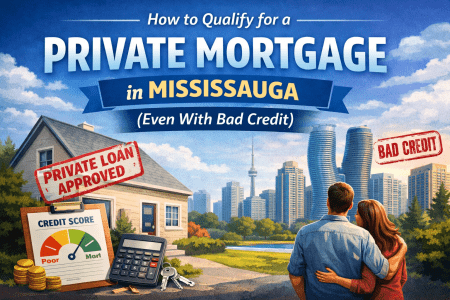A commercial mortgage is a loan typically backed by a business asset, such as an apartment complex, office building, shopping mall, or industrial facility. Commercial property is generally purchased, refinanced, or replenished with loan proceeds. These loans are financed by rental revenue from businesses or company operations rather than personal funds.
The risk that the lender assumes, the state of the market, and the borrowing request significantly impact commercial mortgage rates. Commercial mortgages frequently feature a floating interest rate, which indicates that the interest is subject to change due to the variables above. These loans are provided by banks, conventional financial institutions, insurance providers, and sizable pension funds.
Commercial Mortgages Overview
A loan backed by commercial real estate is known as a commercial or business mortgage. It is typically used to renovate or refinance commercial real estate. While some enterprises obtain a business mortgage to own the real estate on which their operations are conducted, other investors get a similar loan to buy real estate they intend to lease or rent to another company.
Lenders do due diligence by thoroughly reviewing the property’s and its owner’s finances before approving a business mortgage. Before the sale closes, other underwriting and appraisal issues are also highlighted.
The total outstanding commercial mortgage debt increased from 2.2 trillion dollars in 2012 to 3.7 trillion in 2023. Banks, life insurance companies, and state-backed corporations owned the majority of outstanding mortgages.
How to get Eligible for a Commercial Mortgage
Applying for a commercial mortgage necessitates thorough planning and paperwork.
- Financial statements: Lenders examine the company’s income statements, balance sheets, and cash flow estimates to determine its capacity to repay the loan.
- Credit history: A solid credit history indicates the borrower’s dependability in loan repayment and may lead to more advantageous lending conditions.
- Property evaluation: Lenders comprehensively appraise the asset.
- The business plan is to ascertain its current market worth and ensure it meets its financing requirements. A strong business plan may support the loan application by clearly stating the loan’s goal, the potential revenue from the property, and the borrower’s action plan.
- Down payment: To obtain financing, borrowers usually must put down 20% to 30% of the property’s worth.
Advantages of Commercial Mortgages
For businesses, commercial mortgages have several benefits.
- Ownership: Businesses acquire ownership and the possibility of asset appreciation when they buy rather than rent commercial real estate.
- Benefits for taxes: Interest paid on commercial mortgages is frequently deductible from taxes, which lowers firms’ total tax burden.
- Flexibility: Businesses can customize finance to meet their unique needs because commercial mortgages offer flexibility in terms of loan amounts, repayment plans, and interest rates.
- Stability: Since lease rates are not impacted by market changes, owning commercial real estate gives you stability and control over your operational costs.
How Can I Apply for a Commercial Mortgage?
The documentation and scrutiny required to secure a commercial or company mortgage make it more difficult than obtaining a residential mortgage. An enterprise can apply for a commercial mortgage directly from the bank or insurance provider or a skilled commercial mortgage broker.
In addition to paying interest and other fees at commercial mortgage rates, the borrower must provide a deposit of 20–40%, significantly more than required for a residential mortgage, with a deposit cut-off of 5%.
Additionally, the terms of these loans vary from five to twenty years, with an amortization period that is longer than the loan’s duration. In this instance, the borrower makes monthly installment payments plus interest for the duration of the loan, with a balloon payment—the loan balance—being paid at the end.
In addition to standard affordability and credit checks, the lender also considers the company’s profitability and efforts to manage current debts and obligations.
The firm may be asked to submit two or three months’ worth of bank account statements, proof of address, and identity to give the lender enough information to perform the necessary background checks on the business. The corporation may also provide a business projection to assist the lender in understanding the plan of action that the company’s decision-makers have in mind.
While each situation is different, generally speaking, an application would proceed as follows:
- The business mortgage application is completed online.
- Relevant and significant business-related data is provided.
- An appraisal of the property is prepared for the property the organization wishes to purchase.
- Await approval as the lender and their staff do their due diligence.
- A formal offer for a business mortgage loan is sent out once authorized.
Commercial Mortgages vs. Residential Mortgages

Variations exist in obtaining the contract, duration, and other elements, while the fundamental standards and lender bodies remain the same. Now let’s examine the table below to see how the two differ from one another:
Who can get them?
- Commercial: Businesses like developers or investment groups get these loans for commercial properties (offices, shops, etc.).
- Residential: These are for individuals buying a home to live in.
Loan Length:
- Commercial: Loans are typically shorter, lasting 5 to 20 years, with some flexibility on repayment schedules.
- Residential: Loans are much longer, typically 25 to 30 years, with shorter terms available.
Down Payment:
- Commercial: You will need a bigger down payment, usually 20% to 40% of the property value.
- Residential: The down payment is usually much smaller, around 5% of the property value.
Getting Approved:
- Commercial: Lenders care most about your business’s health, including profits and future plans.
- Residential: Lenders focus on your income and ability to afford the monthly payments.
Interest Rates:
- Commercial: Rates can be fixed or variable, depending on the lender. There might be a separate fee spread over the loan term.
- Residential: Rates are typically fixed for the life of the loan, so there won’t be any changes to your monthly payment.
Conclusion
A commercial mortgage is a unique financial instrument for buying or refinancing commercial real estate. The standards for qualifying, loan terms, interest rates, and down payment vary significantly from those of residential mortgages. Commercial mortgages can benefit companies and investors looking to purchase commercial real estate, such as offices or shopping centers. Still, they must be ready for a more complex application procedure and stringent financing requirements. Firms need to comprehend the distinctions between residential and commercial mortgages to make well-informed judgments about the financing of their real estate ventures.
FAQs
- What is the deposit amount for a business mortgage?
Depending on several factors, the deposit amount usually varies from 20% to 40% of the total mortgage amount. In other words, the rate might be lower or greater than this. This choice is often based on the lender’s evaluation of the risks connected to the commercial mortgage loan.
- What is a commercial mortgage’s duration?
A business loan might last five to twenty years. Furthermore, the amortization time is typically extended beyond the loan’s duration.
- How may one become a broker for business mortgages?
A commercial mortgage broker requires a business, economics, or finance degree. Employers also favor applicants with prior expertise in the lending sector or real estate. Applicants must pass the National Mortgage Licensure System test (MNLS) to obtain a license.
- What do commercial mortgages back securities?
Bonds secured by commercial real estate are known as commercial mortgage-backed securities, or CMBS for short. They offer liquidity to real estate investors as well as commercial lenders. The loan in a CMBS serves as security for the investors in the event of a default.








